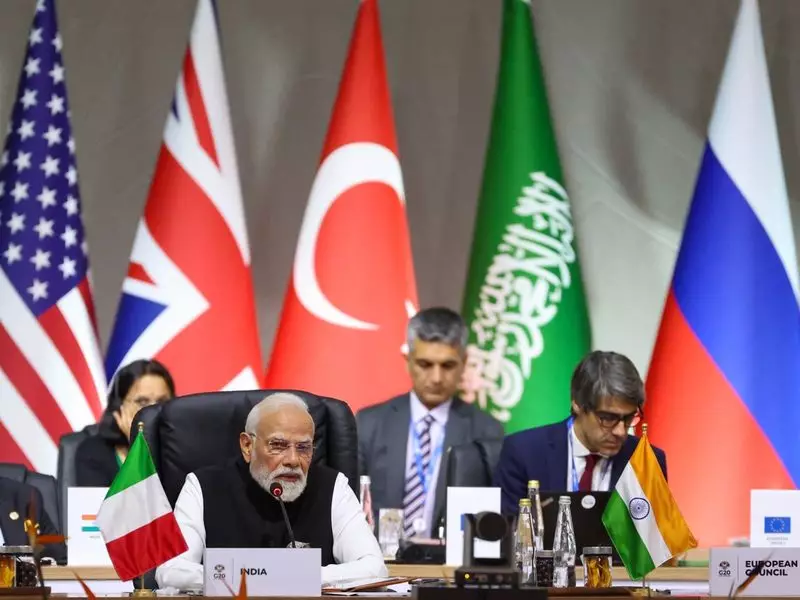
Prime Minister Narendra Modi delivered a powerful address at the G20 Summit in Rio de Janeiro, articulating India's distinctive approach to global challenges through a human-centric development model. The Indian leader emphasized the need for sustainable solutions that prioritize people's welfare while proposing concrete initiatives for international cooperation.
India's Human-Centric Development Philosophy
During his intervention at the summit, Prime Minister Modi highlighted how India's development paradigm places human welfare at the core of all initiatives. The Prime Minister stressed that growth must be inclusive and sustainable, ensuring that the benefits of development reach every section of society without compromising environmental integrity.
Modi elaborated on India's successful implementation of this philosophy through various domestic programs that have transformed lives while maintaining ecological balance. He pointed to several flagship initiatives that demonstrate how economic progress and environmental conservation can coexist harmoniously when approached with the right perspective.
Critical Minerals Circularity Initiative
In one of the most significant proposals from the Indian delegation, Prime Minister Modi pitched for a Critical Minerals Circularity Initiative aimed at promoting sustainable management of essential mineral resources. This initiative seeks to address the growing global demand for critical minerals while ensuring their responsible extraction and utilization.
The proposed framework emphasizes creating a circular economy for critical minerals, focusing on recycling, reuse, and efficient resource management. This approach recognizes the strategic importance of these minerals in various high-tech industries and clean energy technologies while addressing environmental concerns associated with their extraction and processing.
Global Cooperation for Sustainable Future
Prime Minister Modi called for enhanced international collaboration to tackle contemporary global challenges. He emphasized that issues like climate change, resource scarcity, and economic disparities require collective action and shared responsibility among nations.
The Indian leader's interventions at the G20 summit reflected India's growing influence in shaping global discourse on sustainable development. His proposals received positive responses from several member nations who acknowledged India's constructive role in international forums.
Modi's address also highlighted India's commitment to South-South cooperation and its willingness to share developmental expertise with other emerging economies. This positioning reinforces India's role as a bridge between developed and developing nations in global negotiations.
The G20 summit provided an important platform for India to showcase its developmental achievements and propose actionable solutions for global challenges. Prime Minister Modi's emphasis on human-centric approaches and sustainable resource management positions India as a thought leader in designing development models that balance economic growth with environmental stewardship.





